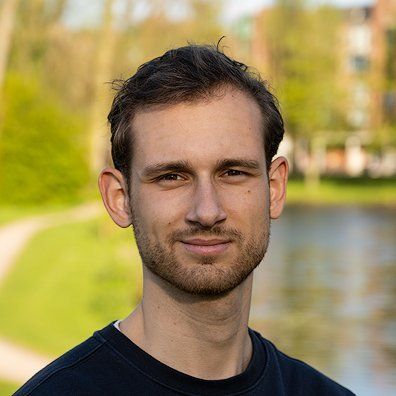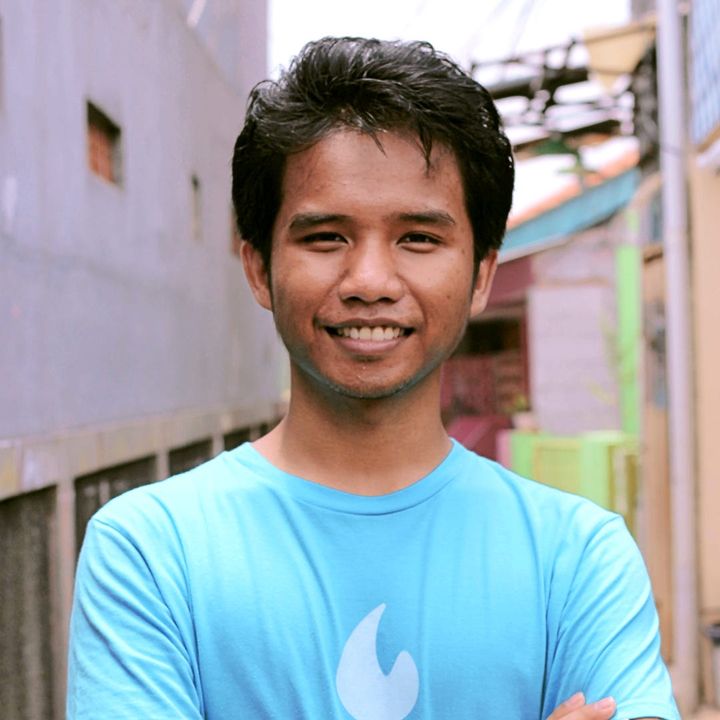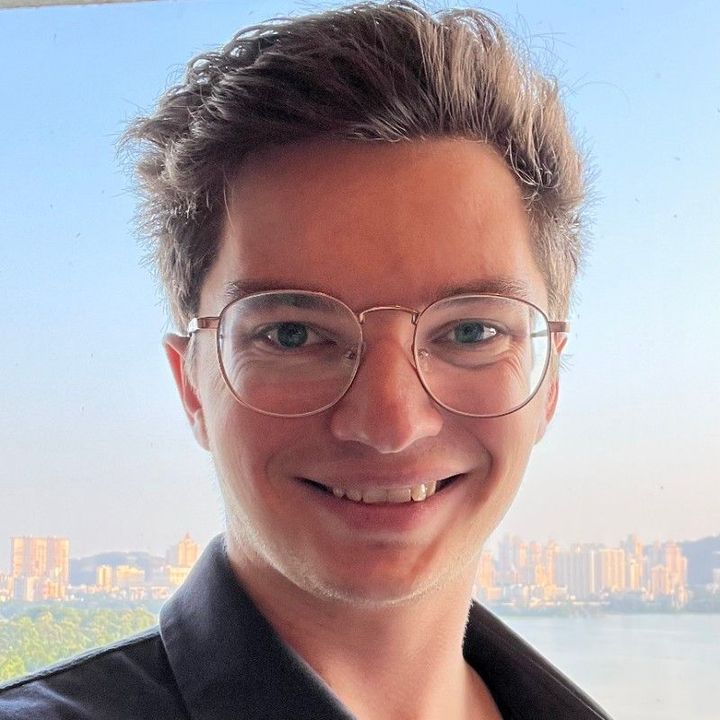AI, Activism, and Global Impact: Exploring Internet Activism with Avi Schiffman
AI Revolution: Insights from Avi Schiffmann, Founder of InternetActivism.org.

Welcome to the AIModels.fyi interview series, where I bring you insights from the brains behind the most innovative AI projects. Today’s conversation is with Avi Schiffmann.
Avi is the visionary force behind InternetActivism.org. He’s harnessed the true potential of the internet to revolutionize activism in the digital age. In this conversation, we delve into Avi's journey, from creating a groundbreaking COVID-19 tracking website to empowering Ukrainian refugees through a transformative housing platform. We also talk about the explosive potential of AI and the importance of being “unbalanced” in order to compete at the top level.
Mike: So, could you share a bit about your journey from Harvard to becoming the founder of Internet Activism? What led you from where you started to where you are now?
Avi: Sure. Well, Harvard isn’t really all that relevant to what I've been doing. My journey in internet activism started about three years ago during the COVID-19 pandemic. I was bored and learning how to code by building applications. I wanted to learn web scraping, so I created a website to track high school sports in Washington State. Then I noticed the epidemic in China and realized it was hard to find reliable information about it. So, just for fun, I made a website to track the spread of COVID-19 when there were only 51 cases.
NB: You can read more about Avi’s Covid tracker here.
People started using it, and I shared it on Reddit and other platforms. A few weeks later, the first case was reported in the United States near where I lived, and people were panicked. I posted a link to my website on Nextdoor, a local social network, and people loved it. Back then, there was a severe lack of information about COVID-19, and my website provided quick, up-to-date facts on a phone-friendly interface. It gained huge popularity, becoming one of the biggest websites on the internet, with over 600 million users and 36 million daily active users at its peak.
Through this experience, I realized I wanted to work on impactful projects and saw the power of scaling websites. I was still a high school student with terrible grades, so I eventually dropped out and continued working on different projects. Last year, when the war in Ukraine broke out, I built a website to help Ukrainian refugees find housing. It became the largest refugee housing platform, hosting over 100,000 refugees. It was a practical humanitarian tool that traditional organizations lacked. Hearing stories from refugees and host families about how it saved lives made me realize the potential of such tools.
That's when I started focusing on creating an international NGO called Internet Activism. It aims to provide online platforms like takeshelter.org for getting and giving help during crises. We've partnered with local NGOs during events like the Turkey-Syria earthquake to be part of broader relief efforts. It's not just about housing; it can connect people with therapists, immigration lawyers, educators, and more. Instead of relying on donations or petitions, we want to facilitate practical assistance from people with various skills. These tools can be lifesaving and can spread rapidly.
I've also developed expertise in traditional media distribution. When I launched Ukraine Take Shelter, I utilized my network to have international journalists cover the story within 24 hours. Distribution is key to success, and I believe in leveraging it for humanitarian causes. Additionally, we're about to launch an app called Hyperlocal, which enables offline communication through Bluetooth, allowing text messages to be sent in crisis situations. Eventually, I see these platforms converging into a humanitarian super platform, where offline access becomes possible.
Most humanitarian organizations are not utilizing the internet or new AI tools. I've been exploring potential use cases, like automated assistance for refugees filling out asylum paperwork in any language. There's a whole industry waiting to be tapped into. I've been building a team of advisors with expertise in both technology and humanitarian work. One of them is Scott Moore, who you may be familiar with.
Mike: I recognize that name. I'm not familiar with him, but the name rings a bell.
Avi: Yeah, he's actually one of the founders of Gitcoin. It's in a different sector of tech, not really about altcoins or anything like that. It's more like a platform for matching. Gitcoin is quite popular in its domain.
Anyway, our team of advisors includes people from organizations like Doctors Without Borders and Amnesty International. So, we have a good mix of expertise on the humanitarian side of things. My goal is to turn this movement into something global rather than just a small group of engineers. There are many individuals who want to contribute to these types of projects, but they often lack distribution channels and funding. Currently, I'm the one applying for grants, but I hope to be in a position to provide grants to others working on similar initiatives. That would be fantastic.
I'm excited about developing InternetActivism.org further. Right now, it serves as a platform for discovering ongoing projects in the activism and humanitarian space. It's like a product hunt specifically for these areas. People can also find collaborators through our Discord server, which has around 700 members. I don't have enough time to be a community manager myself, but I'll eventually find the right people to handle those responsibilities. It's all part of the plan. In a nutshell, Internet Activism can be described as a public goods design studio. That's the gist of it, really.
Mike: Wow, you've touched on several important aspects. It's hard to know where to start. But let's talk about distribution since it seems to be a common thread in everything you've mentioned. How do you tackle the challenge of engaging with local partners around the world who may not speak the same language as you? How do you overcome that hurdle and get people on the ground involved in your projects?
Avi: In the humanitarian world, English is widely spoken, or people know someone who can communicate in English. So language hasn't been a significant issue for me. However, breaking into this space is quite challenging. You can't just approach the executive director of an organization like Doctors Without Borders without years of experience and connections. That's where my work on building a real organization and establishing connections comes into play. I want to be a middleman for others who are working on similar initiatives, bringing software into the humanitarian space. Internet Activism aims to revolutionize help and bring it into the 21st century.
Mike: That makes sense. Shifting gears a bit, I'm curious about how you grew the Ukraine housing project. How did it take off, and what channels did you utilize for its success?
Avi: When I identified the problem, I realized that existing methods were not scalable or effective. I partnered with a friend from college, and together we built the platform in just 72 hours with a minimal cost of a few thousand dollars to run the entire operation. We were able to house over 100,000 people, which is incredibly cost-effective compared to traditional humanitarian organizations.
In terms of distribution, I initially used guerrilla marketing tactics. I reached out to local Facebook group admins, tried to join relevant WhatsApp and Telegram groups, and spread the word through word of mouth. I also leveraged my media contacts, like CNN, to write about the project. It's a valuable distribution strategy that I want to share with others. Additionally, my previous work on the Coronavirus website helped establish my credibility, which played a role in the project's success. Ultimately, if you build something people want and need, they will use it.
Mike: Distribution and growth raise another question: When do you decide to focus on scaling? At what point do you think, "Millions of people might use this, so I need to build it in a scalable way," versus taking a more scrappy, MVP approach?
Avi: In today's world, you can build something that scales without necessarily knowing all the technical intricacies. For example, UkraineTakeShelter.com was built using Next.js, Firebase, and Vercel.
While it may not be the most cost-effective solution, people are willing to contribute financially to projects like these. It may not be perfectly optimized, but it's good enough. Vercel's SEO worked without me even touching it, and the website remained the top search result for Ukraine housing. So, from a technical perspective, scaling is not as big of an issue as it used to be.
The real challenge lies in funding rather than the technical know-how. Anyone can deploy something on AWS, but the question is whether they can afford it. You can spend a lot of time optimizing, but I believe it's more important to focus on go-to-market strategies, especially with the advancements in AI tools. ChatGPT, for example, could build UkraineTakeShelter.com in less than a day.
Mike: Shifting the conversation to AI, do you foresee any challenges at the intersection of nonprofits and AI? Are there concerns about bias, privacy, and security?
Avi: Well, in terms of privacy, I'm actually working on a project right now that is not directly related to internet activism but has some connections to it. In fact, I'm wearing the prototype of it right now. It's like a knowledge base of my life, capturing moments through a camera. It's like having a rewind button for your actual life. The system analyzes the captured scenes and performs interesting actions without you needing to search for anything. It's a fascinating project, and privacy is a key consideration in its development.
But honestly, I don't have a concrete answer regarding the intersection of AI, nonprofits, and privacy. What I can say is that for internet activism, I'm excited about the potential of AI to automate the generation of web-based humanitarian tools.
I envision a future where you can easily add AI-powered plugins to platforms like TakeShelter.org, making it more efficient. It's all about creating a system for distributing these tools to those in need. That's the direction we're heading, and I'm thrilled to be leading the way.
By the way, let me tell you more about this project I mentioned earlier. It involves circuit boards taped to me, and although it looks ridiculous, it's the future. It's called "Tab," and it's essentially a knowledge base of my personhood. I'm building an AI coach that helps me stay on track with my goals and organizes my daily life. The data it collects becomes part of my knowledge base, and I believe this concept will shape the future. It's going to be a game-changer for authentication and interaction with various applications. I'm quite excited about it and believe it will have a significant impact in the industry.
Mike: I'll definitely be following your updates about that on Twitter! Now, one last question I have for you is regarding the blog readers who are wearing multiple hats as founders and developers. Do you have any advice for someone juggling all those responsibilities?
Avi: Yes. With the sum total of human knowledge available at our fingertips, we can learn anything we want. You can apply this to any field and accelerate your knowledge and productivity. Personally, when I want to learn about a new concept or field, I start with a high-level overview and then dive deeper into specific areas of interest. The tools and resources available today are incredible.
I live in a community surrounded by people who leverage this technology, and the level of productivity and output is mind-blowing. You can be working on multiple things simultaneously and be highly effective. Of course, having focus and conviction is crucial. Pick an idea you believe in and go all-in.
Being well-rounded is overrated, especially when you're young and have the opportunity to dedicate yourself fully to something you're passionate about. Cut out distractions, prioritize your work, and embrace the unbalanced approach. It's the path to competing at the highest level and achieving significant impact. Just remember to leverage the tools available to you because your competitors are already doing so. They are accelerating at an unprecedented pace. So, learn how to use these tools effectively.
Feel free to work on small projects alongside your main focus if you want, but if you truly want to play in the big leagues, you have to commit fully. That's the kind of life you need to live.
Conclusion
That concludes our interview with Avi, the visionary founder of InternetActivism.org. We've gained valuable insights into Avi's journey, his passion for leveraging technology for social impact, and his vision for the future. Whether you're an aspiring activist or a tech enthusiast, be sure to follow Internet Activism for innovative solutions and impactful initiatives.
Thank you for joining us, and until next time, stay inspired and continue making a difference in the world!
Subscribe or follow me on Twitter for more content like this!




Comments ()